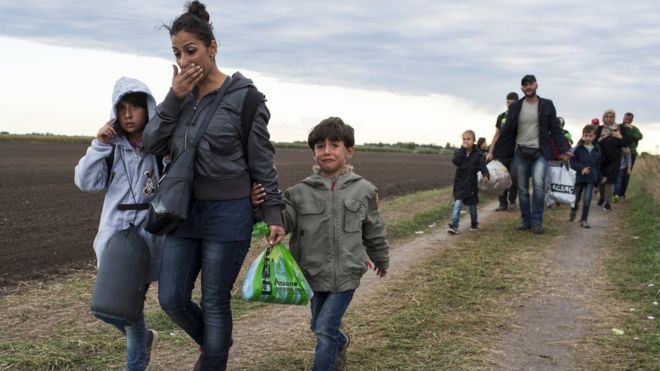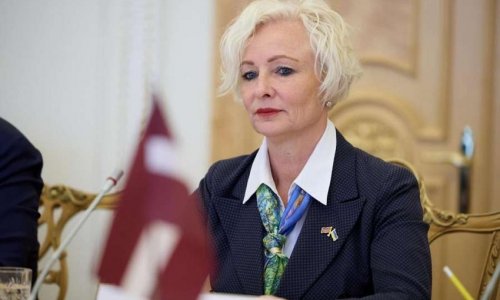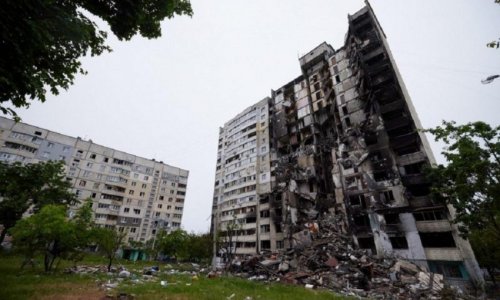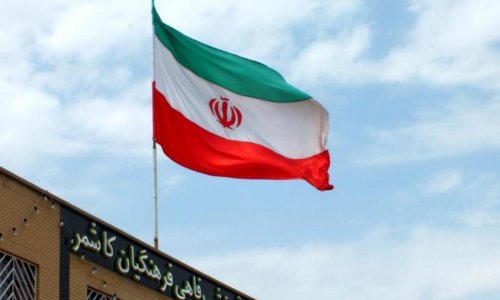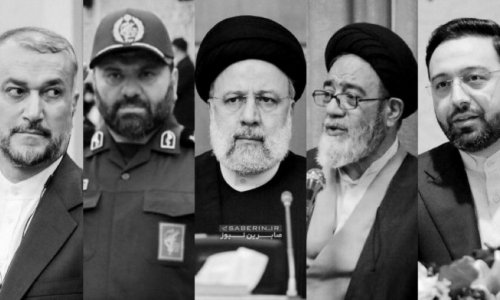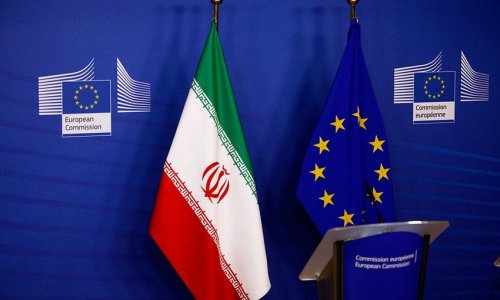Images of Syrian refugees stuck at borders and at train stations, not to mention the harrowing picture of three-year-old Alan Kurdi lying dead on a Turkish beach, have spurred on an outcry for more to be done to help those fleeing the war.
Particular anger has focused on the Arab states of the Gulf Cooperation Council (Saudi Arabia, Bahrain, Kuwait, Qatar, Oman and the UAE), who have kept their doors to refugees firmly shut.
Amid the criticism, it is important to remember that the Gulf states have not stood by and done nothing for Syria's refugees.
The generosity of individuals has at times been quite remarkable.
Individual charitable collections have totalled hundreds of thousands of dollars, and when workers at national industries (for example, Qatar Petroleum) were asked if they wished to place part of their salary aside every month for Syria's refugees, many obliged.
The Gulf states have provided in total around $900m (£600m) through charitable organisations, and individual donations.
However, as Syria's war has dragged on, providing resources for refugees living in camps has become inadequate.
The world has had to find other solutions to cope with this mass population movement, as Syrians tired of war and of languishing in camps with little hope of social or financial betterment have begun to leave the conflict zone in search of a more secure and prosperous future.
In short, providing food and shelter for people living in camps was a solution for yesterday's problem. The most pressing issue is now finding hundreds of thousands of people somewhere to live, and it is here where the Gulf states have really begun to struggle for answers.
Instability fears
While the Gulf states have allowed some Syrian nationals in (Saudi Arabia says it has let in 500,000 since 2011), primarily as migrant workers, there has been no explicit policy from any of these countries to house refugees arriving en masse without sponsors or work permits.
To explain this requires delving deeper into Gulf states' fears regarding political stability within their own borders, and into larger questions of civic identity and the notion of what being a citizen of a Gulf state means.
In 2012 as the war with Bashar al-Assad began to become a more clearly established competition between Sunni Gulf Arab interests and Iranian aligned allies, deep fears began to pervade the Gulf states that Syrians loyal to Mr Assad would seek to infiltrate the Gulf to exact revenge.
Screening of Syrian travellers to the Gulf began apace, and it became markedly more difficult for Syrians to receive work permits or renew existing permits.
The policy has not yet changed, with Qatar, Saudi Arabia, and the UAE in particular extremely concerned about the potential for Assad loyalists to strike back.
Rumours have persisted in the Gulf for the past three years of cells of terrorist suspects being rounded up quietly and detained, although no direct proof of a plot by Assad supporters has ever come to light in public.
Demographic balance
Additionally, the influx of thousands of Syrians at once would threaten to overturn a highly delicate demographic balance that the Gulf states rely on to keep functioning.
For example, citizens in the UAE and Qatar number a little over 10% of the resident populations in their respective countries. The vast majority of residents are transitory economic workers.
Foreigners are only allowed residency if they or their spouse have full-time jobs - there is no possibility to remain permanently in the Gulf without work - and once their contracts are up almost all migrants return home.
This is how the Gulf works - with a high turnover of low and high skilled labour, which allows the native Gulf Arab populations to maintain their dominant status without being overrun by Arabs from other countries, or South Asian labourers.
Muted discourse
So the idea of thousands of foreigners coming in, without employment or any definite return date, is deeply uncomfortable for Gulf states.
There is no precedent (not even the Palestinian exodus of 1948) that matches the scale of the demographic threat Syrian refugees pose to Gulf identity and social composition. And the Gulf states simply have no response to questions the Syrian refugee crisis poses.
It is very difficult to see how these ingrained fears of demographic change and threats to civic identity can be overturned through public pressure or diplomacy, particularly from Western countries.
There is very little public conversation to pressure the Gulf's ruling families to change course.
Furthermore, Gulf elites feel this mess would never have happened in the first place had the West done something sooner to deal with Mr Assad and his regime. Pleas from Western diplomats are likely to fall on deaf ears.
(BBC)
www.ann.az
Follow us !

